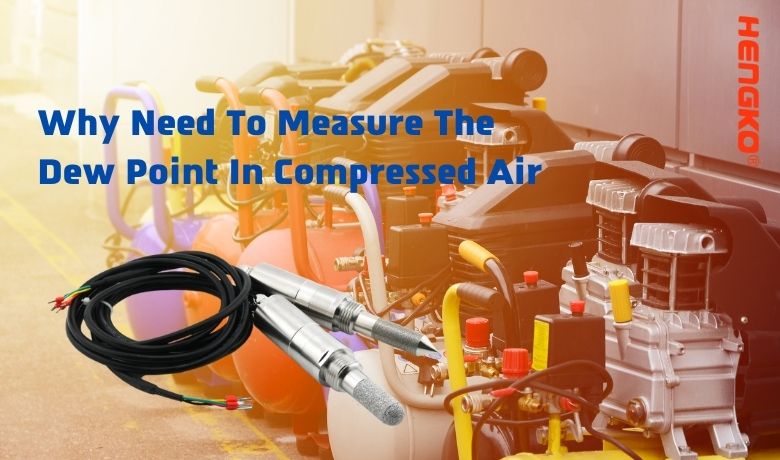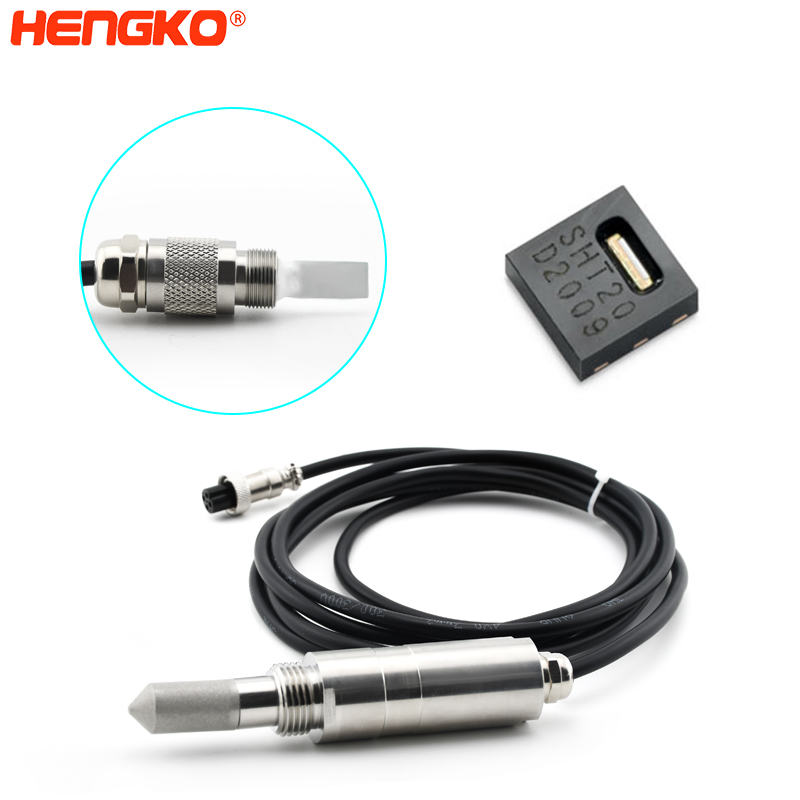
Compressed air is regular air, the volume of which has been decreased with the help of a compressor. Compressed air, just like regular air, consists mostly of hydrogen, oxygen and water vapor. Heat is generated when the air is compressed, and the pressure of the air is increased.
What is Pressure Dew Point ?
The dew point of compressed air can be defined as the temperature at which water vapor suspended in the air can start condensing into liquid form at an equal rate as it is evaporating. This fixed temperature is the point at which the air is fully saturated with water and can no longer hold any more vaporized water except some of the vapor it contains condenses.
Why and How Do We Dry Compressed Air?
Atmospheric air contains more water vapor at high temperatures and less at lower temperatures. This has an effect on the water concentration when the air is compressed. Problems and disturbances can occur due to water precipitation in the pipes and connected equipment. To avoid this, the compressed air must be dried.
There Are Some Important Reason As Follow :
Dew point measurement is essential in compressed air systems to ensure the quality of the air used in various industrial applications. The dew point is the temperature at which water vapor in the air condenses into liquid water. In compressed air systems, high moisture can cause corrosion, reduce the efficiency of air tools and machinery, and affect final product quality. This blog will explore why measuring dew point is critical in compressed air systems.
1) Prevent Corrosion and Increase the Service Life of Equipment
When compressed air systems are exposed to moisture, it can cause corrosion in pipes, valves and other components. Moisture combined with oxygen and other impurities can cause rust and other forms of damage to equipment. This can lead to costly repairs, downtime and even equipment replacement. Additionally, corrosion in compressed air systems can lead to leaks that can affect the quality and pressure of the air produced.
By measuring the dew point in your compressed air system, you can determine if the air contains too much moisture. Humid air produces a higher dew point, while dry air produces a lower dew point. Once the dew point is determined, the necessary steps can be taken to dry the air before it reaches any equipment. By ensuring that the dew point of your compressed air system is below the level at which water would condense, you minimize the risk of corrosion and thus extend the life of your equipment.
2) Improve the Efficiency of Air Tools and Machinery
Any moisture in compressed air can cause damage to air tools and machinery that rely on a supply of clean, dry air. The presence of water disrupts the lubrication process of pneumatic equipment, causing friction and other mechanical problems that can lead to reduced performance, increased wear and loss of accuracy.
By measuring the dew point, steps can be taken to control the amount of moisture introduced into the compressed air system. This maintains optimum humidity levels, which improves performance and extends the life of your mechanical and air tools.
3) Improve Product Quality
In applications where the compressed air is in direct contact with the product, high moisture can adversely affect the final product quality. Compressed air containing moisture can lead to microbial growth, contamination and product deterioration, resulting in lost revenue, customer dissatisfaction and potential health hazards.
Measuring dew point helps regulate moisture levels in these applications, ensuring high quality and consistent production standards are maintained. In addition, the low dew point ensures that the compressed air is free of oil, hydrocarbons and other contaminants that can affect product quality.
4) Compliance with Industry Standards and Regulations
Many companies that rely on compressed air systems have strict regulations and standards. For example, the FDA requires compressed air systems used in the food and pharmaceutical industries to meet certain sanitation standards. Likewise, the automotive industry has strict standards for air quality to prevent pollution during painting and spraying.
Measuring dew point helps ensure that compressed air systems comply with required standards and regulations. Failure to comply can have legal and financial repercussions, resulting in fines and loss of business.
In conclusion, measuring dew point is an important aspect of compressed air system maintenance. If not managed properly, moisture can have a devastating effect on equipment life, reduced efficiency, product quality and compliance. Measuring the dew point on a regular basis provides a clear picture of the exact moisture content of the air to ensure that any necessary steps are taken to prevent moisture-related problems.
How to Measure Dew Point?
HENGKO RHT-HT-608 industrial high pressure dew point transmitter, simultaneous calculation of dew point and wet bulb data, which can be output through the RS485 interface; Modbus-RTU communication is adopted, which can communicate with PLC, man-machine screen, DCS and various configuration software are networked to realize temperature and humidity data collection.
If You are Looking to learn more about dew point transmitters solution ? Contact us today at ka@hengko.com for all the details you need. We can't wait to hear from you!
Contact us online today for more information on how our product can optimize your compressed air processes.
Post time: Sep-28-2021







